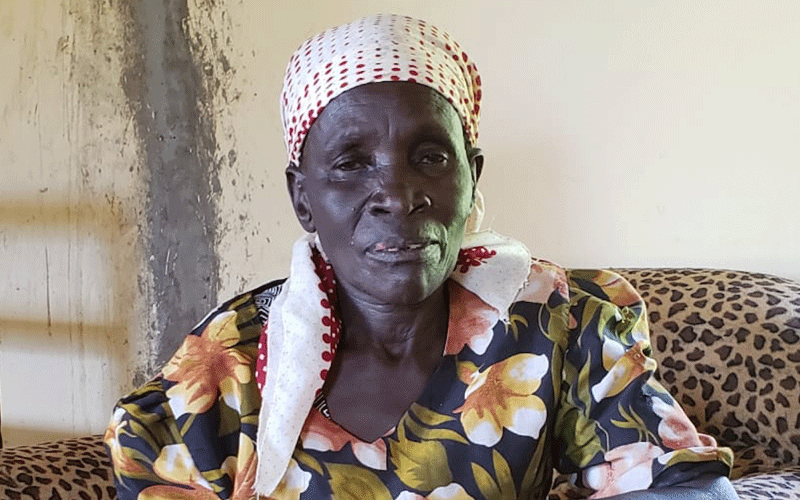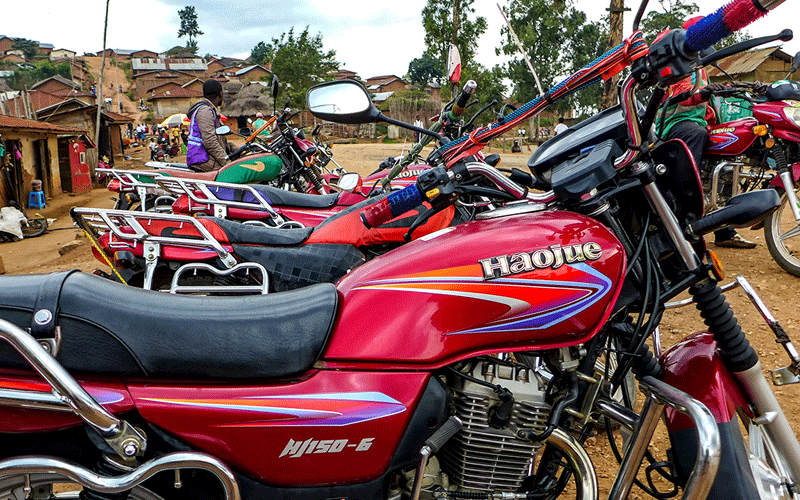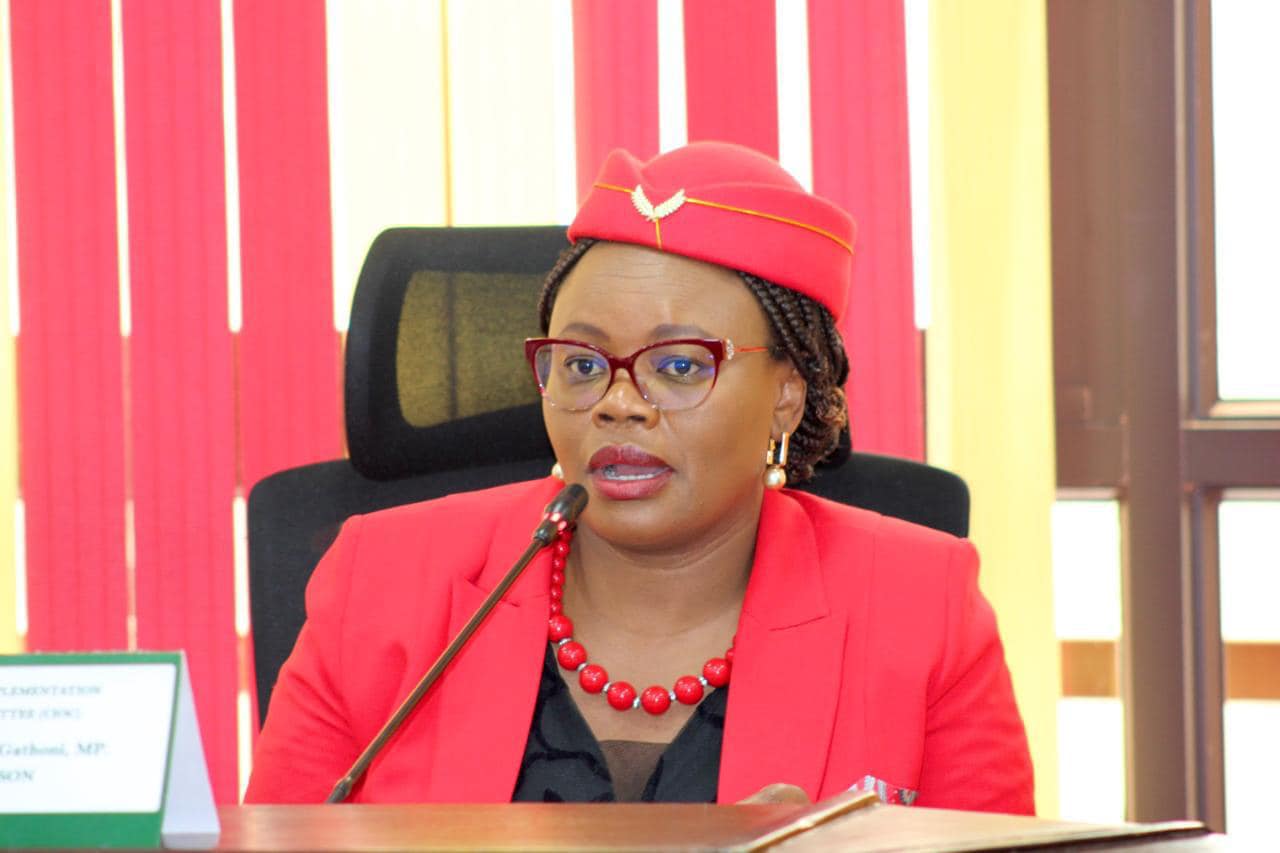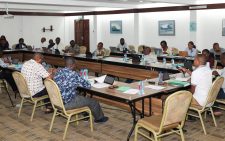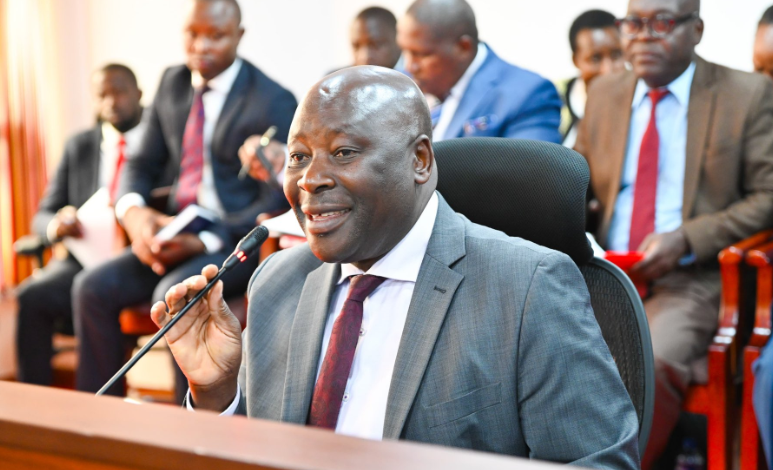School closure offers university graduates teaching opportunity
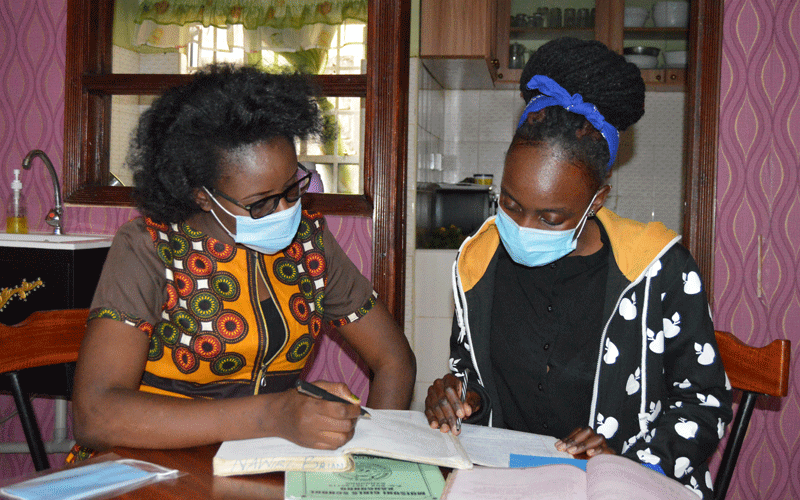
Viola Kosome
When the first case of Covid-19 was reported in Kenya on March 12, this year, the closure of all learning institutions was one of the safety measures the government put in place to help curb the pandemic.
So on March 15, schools were closed. Later, the government gave a directive to have school going children utilise the resources around them to continue with their learning from home amid the pandemic.
This included listening to radio lessons, attending online and television classes offered in various stations.
Even with this, not all children have been able to benefit from the programmes following the challenges they face including poor network and lack of electronic gadgets, just to mention but a few.
This is what pushed Racine Nyalik to venture into a learning programme that would benefit children.
At 25-years and a fresh graduate from Kenyatta University with a bachelors degree in special needs and education, Nyalik has made learning much easier by coming up with a home schooling and tutorial services.
Different demands
The idea which was born in Kisumu towards the end of March saw the young teacher spread her wings to Nairobi barely a month after its inception.
According to Nyalik, the pandemic made her realise an opportunity to have parents embrace home schooling to help engage learners with books.
Dubbed ‘Nyalik Educators’ the programme aims at helping school going children and those with special needs achieve their academic expectations.
“We offer educational and interventional measures to all learners including those with special needs in order to bring them to a level where it is easier to catch up with their classes and make up for anything they missed out of class,” she says.
In the beginning, she had limited clients, but with time, she has managed to employ three more teachers. Now, she has 28 learners.
“My clients come with different demands, this made me employ more teachers who can offer some of the services I wasn’t able to offer alone,” she says.
She has assembled a team of teachers who are also coaching learners with special needs by conducting online lessons.
The programme, she says offers all subjects to the learners including those with special needs such as; Braille classes, sign language, mobility and intervention measures, they also offer play and creativity sessions for pre-school children.
“We also offer all subjects for primary going pupils while for secondary school students, we do mathematics, languages, sciences and humanities,” says Nyalik.
Currently, the educators have plans to incorporate foreign language classes following demands from their clients.
The Kenyatta University graduate said depending on the kind of learner they receive, they check on their strengths or weaknesses academically, discuss with the parent on what they feel should be recommended to the learner and together with the parent decide on what subjects to prioritise and how many sessions a week could work for better performance of the child.
For Special Needs Education, she says, there are specific intervention measures for learners.
“If we have a student who is blind for instance, they will definitely have to start with knowing how to use a slate and a stylus, working on mobility and familiarising with their environment.
For the deaf students and those with Autism Spectrum Disorders commonly known as ASD, there are specific learning strategies,” she said.
Based in Kasarani, Nairobi, Nyalik says they offer services within Nairobi and it’s environs. She says they are mobile, meaning they take their services to clients.
On average, one teacher has three sessions a day. Their charges, she says, are not fixed as the prices are solely dependent on what the parents want for their child.
“For primary school children, a 90 minutes session goes for Sh500 with a break of 10 minutes in the middle of a session and the same applies for secondary school students under the Kenyan system.
For kindergarten and Grades One, Two and Three we do Sh300 for half a session or usually with an extension to a full hour because they have shorter concentration spans and play is more important incorporated in their studies,” she said.
Her outfit also charge between Sh1,000 to Sh1,500 depending on the needs of the learner.
Their main challenge, however, she says is moving around from one client to the other as they may get caught up in traffic jam and having the pre-school pupils misbehave during weekdays when their parents are not around.
Safety measures
Anne Aballa, a beneficiary admitted to People Daily how home schooling has greatly helped her 18 year-old-daughter Natalie Wambura who is a Form Four student at Mwisuni Girls Secondary School in Kangundo, Machakos county.
“She has taken her education seriously. She didn’t have a lot of interest in studying, but now she is always busy reading and doing her assignments,” said Aballa.
Another parent, Ayman Clara said the tutorials have greatly helped her five-year-old son who is in PP2.
When it comes to Covid-19 safety measures, Nyalik says the educators and learners have ensured they abide by the strict rules as given by the Ministry of Health, including hand washing and use of sanitisers, wearing of masks and social distancing.
“We also do regular temperature checks to ensure we are all doing fine,” she says.
Nyalik urges parents to embrace change and not to be rigid about what they feel is right and deserving of their children.
“As teachers, we tend to manifest stronger connections to our students. We are usually emotionally stuck with our students because they are our day-to-day experience.
We would love to keep having our clients even after the Covid-19 pandemic and we believe we shall overcome and probably everything will get back to normal,” she adds.
Early this month, Education cabinet secretary Prof. George Magoha pleaded with authorities to start home schooling and tutorial services to learners.
He said there was no problem with children being taught on small clusters in the comfort of their homes.
